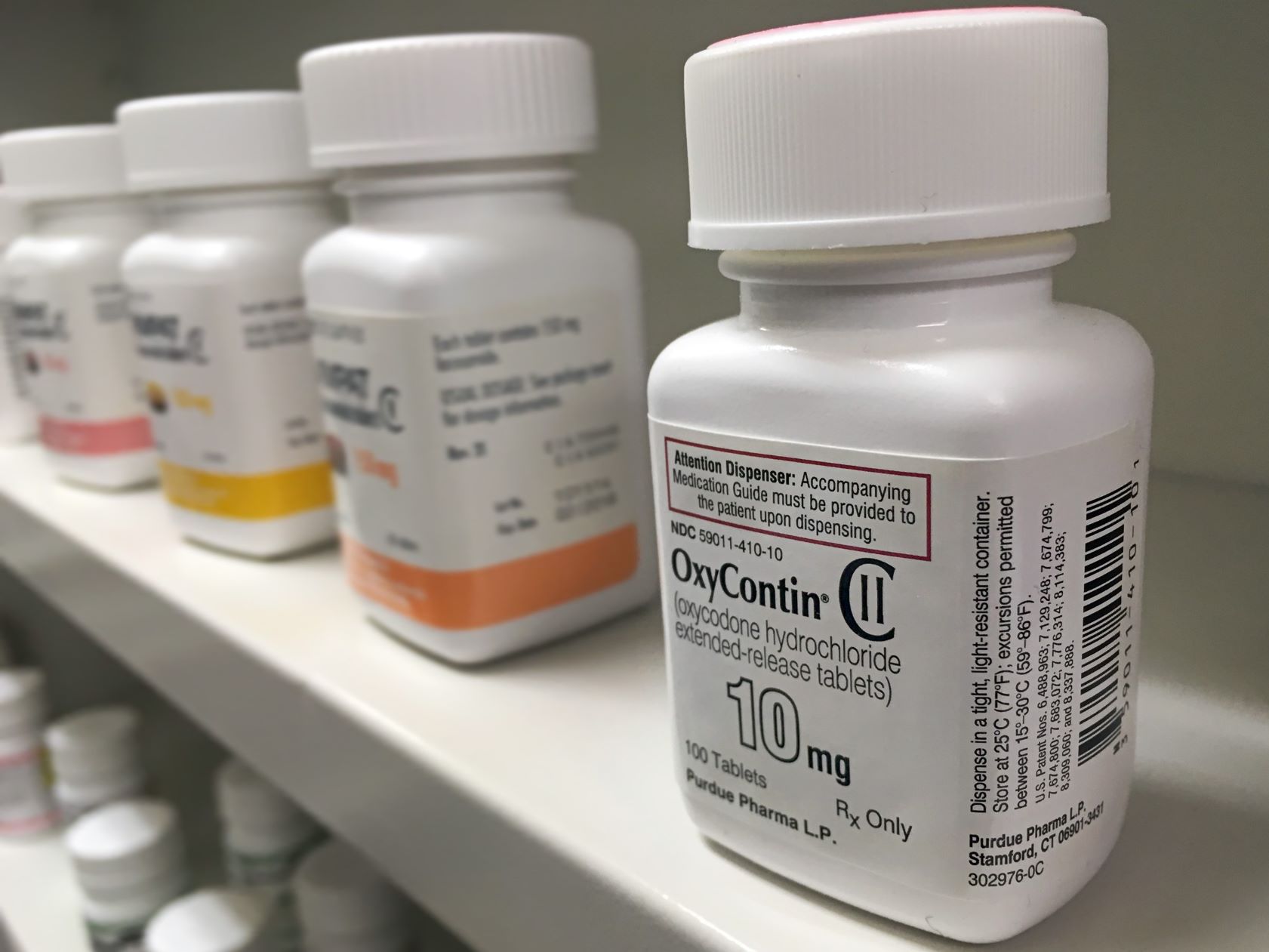Taking a different — and more efficient — approach than many other recipients of what will eventually amount to more than $235 million in opioid settlement money, Franklin County is just weeks away from reviewing applications for its first round of grant awards.
“We want to make sure that that money is getting spent to combat the opioid addiction crisis that we have,” county administrator Amy Bernard said.
In February, the county commissioners approved Bernard’s proposal to create an advisory committee that would develop a grant process to disburse the first round of payments from national settlements with opioid manufacturers, distributors and retailers.
Settlement payments to all Maine recipients — 50% will go to the Maine Recovery Council; 30% to select counties, cities and towns; and 20% to the Office of the Attorney General — began last year and will continue through 2038.
Franklin County received nearly $190,400 as of Aug. 2 and will receive an estimated $1.34 million over the course of the settlement, according to the attorney general’s office.
In May, the nine-member Franklin County Opioid Settlement Committee, which includes Bernard, several healthcare professionals, a sergeant from the Franklin County sheriff’s office and other residents, met for the first time.
“We want this to be applicable for programs and projects that can, you know, actually do the work of … stopping the opioid crisis, or at least slowing it down,” Bernard said. “And throwing all of those funds at one department or one project never really came to the forefront. It really had never even been a conversation.”
A request for proposals went out last month and are due by Oct. 15. The committee will review and score each proposal before making recommendations to the commissioners, who will choose the grantees. Bernard said the county hopes to get the first awards out before the end of the year.
According to the latest annual community health needs assessment report for Franklin County, residents identified mental health, access to care, substance, and alcohol use and social determinants of health as top health priorities.
“Mental health and substance use are very intertwined and interconnected and so, you know, we are trying to work on that in more of a holistic approach,” said LeeAnna Lavoie, director of Healthy Community Coalition of Greater Franklin County, and a committee member.
But “where you live matters as far as your access to resources,” she said. “And so it makes it a lot more challenging for us in a rural county.”
There are more than 70 miles between the county seat of Farmington, where a lot of services are based, and the Canadian border. Access to medication-assisted treatment, recovery and social services, and transportation are some of the biggest issues for residents, Lavoie said.
Increasingly, housing is also becoming more of a concern.
“Getting services out to people is very challenging and when you have substance use disorder, oftentimes you’ve lost a lot of things,” Lavoie said.
Many of these individuals “don’t have the means to get healthy.”
When considering how to spend the $1.34 million that Franklin County expects to receive over the next nearly two decades, Lavoie said “ideally, we want to get as upstream as we can to prevent future use, particularly with our children. But we also have to stop the bleeding and save lives of individuals impacted by opioid use disorder.”
To do so, Franklin County needs to provide “adequate access” to harm reduction, and treatment and recovery resources, which this funding makes possible.
Another committee member, Richard Lumb, a part-time faculty member at the University of Maine at Augusta’s justice studies program, began his career in law enforcement in the mid-1960s as a Maine state trooper. For five years beginning in 1995 as an associate professor at the University of North Carolina at Charlotte, he worked with the Charlotte-Mecklenburg police department to create a community-oriented policing program.
“The secret to success” of that program was the people involved and the level of collaboration within the community, he said.
Lumb lost a grandson and son-in-law to overdoses years ago. The fact two Mainers are dying per day from an opioid-related overdose is a “travesty,” he said.
It is important for him that the money goes to organizations that can have an effective and sustainable impact in communities, and for people who use drugs.
Having a “broad scope” of people serve on the committee was important to the commissioners, Bernard said. This group is “doing a lot of heavy lifting with process, making sure that we’re being equitable and that … we have the right application and the correct matrix to score these projects.”
It can be tough to get a group of this size moving quickly, so after the first meeting Bernard asked the county’s American Rescue Plan Act coordinator to facilitate meetings, which made a huge difference.
“I think we are in a position now that we’re kind of moving one step closer to actually rolling out some of this money,” she said.







